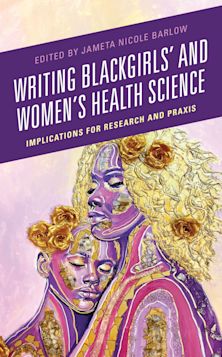- Home
- ACADEMIC
- Psychology
- Social Psychology
- Growing Up Latino in the United States
Growing Up Latino in the United States
Exploring Development in Culture and Context
- Textbook
Growing Up Latino in the United States
Exploring Development in Culture and Context
- Textbook
Available for purchase via Bloomsbury etextbooks on publication date
Exam copy added to basket
Choose your preferred format. Please note ebook exam copies are fulfilled by VitalSource™.
Buy from Bloomsbury eTextBooks
You are now leaving the Bloomsbury Publishing website. Your eBook purchase will be with our partner https://www.vitalsource.com.
Your credit card statement will show this purchase originating from VitalSource Technologies. They will also provide any technical assistance you might require.
You must sign in to add this item to your wishlist. Please sign in or create an account
Description
The first resource to comprehensively present and integrate the interdisciplinary social and
psychological research on the diversity and complexity of Latino child, adolescent, and young
adult social and psychological development, with implications for practice in social work,
counseling, education, advocacy, and policy.
Table of Contents
I. Foundations in Latinx Development
Ch 1 Introduction to Cultural Context for Latinx Children and Adolescents
Ch 2 Diversity and Development
Ch 3 Theoretical and Research Foundations
II. Macro-Level Perspectives on Latinx Development
Ch 4 Historical Roots of Latinx Development
Ch 5 Latinx Immigration, Acculturation, and Discrimination
Ch 6 Latinx Demographics in the United States
III. Micro-Level Perspectives on Latinx Language and School Performance
Ch 7 Bilingualism and Education: The Impact of Two Languages (co-authored
with Marlene Zepeda)
Ch 8 Latinx School Performance: Pre-K and Elementary School Years (coauthored
with Marlene Zepeda)
Ch 9 Latinx School Performance: Secondary Education and Beyond
IV. Micro-Level Perspectives on Latinx Social Cognitive Development
Ch 10 Ethnic Identities, Intersectionality, and Self-Concept
Ch 11 Development and Impact of Bias and Prejudice
V. Micro-Level Perspectives on Latinx Social Relationships
Ch 12 Latinx Parenting and Family Relations
Ch 13 Latinx Peer Relations
VI. Lessons Learned
Ch 14 Revisiting the Integrative Model of Development to Resiliency in Latinx
Children, Youth, and Families
Ch 15 Looking Forward: Research, Policies, and Practice
Product details

| Published | May 14 2026 |
|---|---|
| Format | Ebook (PDF) |
| Edition | 1st |
| Extent | 400 |
| ISBN | 9798881857257 |
| Imprint | Bloomsbury Academic |
| Illustrations | 50 tables |
| Publisher | Bloomsbury Publishing |


































